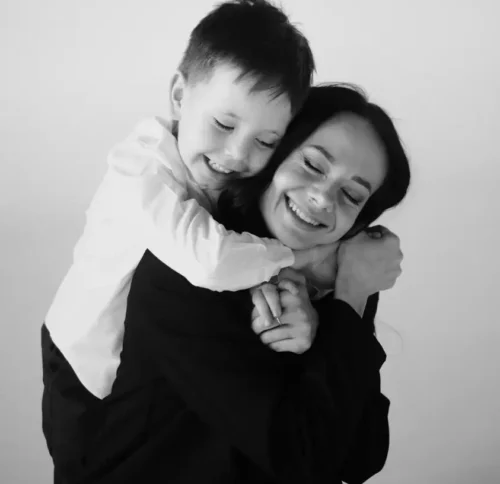Growing up as a neurodivergent person, I spent a lot of my life masking. I learned to put on a face, hide my quirks, and blend into what I thought the world expected of me. As a teenager, I was hyperaware of how I wasn’t like everyone else. I noticed how easily others seemed to move through conversations, school, and social situations, while I was constantly playing catch-up — faking my way through interactions and mimicking what I thought was “normal.”
This kind of masking became my safety net. But as I got older, it started to feel suffocating. Pretending to be someone I wasn’t wasn’t just draining — it was keeping me from fully experiencing life. I was always exhausted, always anxious, always afraid that if I slipped up, people would see the real me and reject me for it.
But here’s the thing I’ve come to realize: neurodivergence isn’t something to hide. It’s not something to be ashamed of. And, as hard as it is to admit, trying to mask who I was only made things harder in the long run.
Learning to Unmask and Embrace Myself
As an adult, I’ve learned that it’s okay to be myself — quirks, differences, and all. The more I let go of the need to fit into someone else’s version of “normal,” the more I discovered a deep sense of relief and freedom. It wasn’t easy, and it didn’t happen overnight, but gradually I began to understand that being neurodivergent is part of who I am. And that’s okay.
If you’ve spent years masking your neurodivergence, you know how exhausting it can be. But letting go of the mask and embracing your true self is one of the most empowering things you can do. It doesn’t mean you won’t still feel different. It just means you’ll feel more you.
Navigating Relationships as a Neurodivergent Adult
Whether it’s personal or professional, relationships can feel complicated when you’re neurodivergent. For years, I struggled with feeling like I wasn’t connecting with people the way I was supposed to. Maintaining eye contact felt like a performance. My body language never seemed quite right. I’d analyze every conversation afterward, picking apart every word to see where I might have “messed up.”
But over time, I’ve realized that my differences in communication don’t make me less worthy of connection. I’ve learned that I can have meaningful relationships without forcing myself to fit into someone else’s mold of what a conversation should look like.
Tips for Navigating Conversations When Eye Contact and Body Language Feel Uncomfortable:
- Be Honest About Your Discomfort: It’s okay to tell people that making eye contact is hard for you. If you’re open about it, people are often much more understanding than we expect.
- Find Alternatives: If making direct eye contact feels overwhelming, try focusing on someone’s forehead or looking slightly to the side. It can help ease the discomfort while still engaging.
- Use Active Listening: Even if body language isn’t your strong suit, being an active listener can show the other person that you’re engaged. Nodding, paraphrasing their points, or asking thoughtful questions can bridge that gap.
- Take Breaks if Needed: If a social situation becomes too overwhelming, it’s okay to step away for a moment. Take deep breaths, re-center yourself, and return when you feel ready.
How Neurodivergence Affects Parenting and Home Life
Parenting as a neurodivergent adult comes with its own set of challenges. For me, ADHD often makes it difficult to keep things organized. From remembering appointments to managing daily routines, it’s easy to feel overwhelmed by all the responsibilities. House chores? Forget about it — there are times when even looking at a messy room can make me freeze up.
When we’re overwhelmed, our brains can go into a state of “freeze.” Instead of tackling the to-do list, we shut down, unable to process where to even start. For me, this is when anxiety and depression can creep in, making everything feel impossible. But I’ve learned a few strategies over the years to help me pull out of that freeze and keep going, even when life feels too chaotic.
Strategies for Managing ADHD and Overwhelm at Home:
- Break Tasks into Small, Manageable Steps: When I’m feeling overwhelmed, I remind myself to take things one step at a time. Instead of cleaning the entire house, I start with one corner of one room. Breaking tasks down makes them feel less intimidating.
- Use Timers: Sometimes, I set a timer for 10 or 15 minutes and tell myself I’ll only work for that long. Often, just getting started is the hardest part, and once I’m going, I can keep the momentum.
- Create a Routine: ADHD can make routines difficult to stick to, but having some sort of daily structure has been a game-changer for me. Even simple routines — like doing a quick clean-up every morning — can make a big difference.
- Give Yourself Grace: There are days when things don’t get done. And that’s okay. I’ve learned not to beat myself up over it. Tomorrow is another day, and I can always try again.
How I Stay Grounded Through the Storm
There have been times in my life when I’ve felt like I was drowning in the overwhelm — like the weight of the world was too much and I just wanted to give up. But one thing I’ve always been able to count on is my own resilience. No matter how dark things got, I’ve always managed to pull myself out of that void through positive thinking and sheer determination.
Here are some of the strategies that have helped me stay grounded when the overwhelm sets in:
- Spending Time in Nature: Getting outside, even if it’s just for a short walk, helps me clear my mind. Nature has a calming effect that brings me back to the present and reminds me that the world is bigger than my current struggles.
- Writing About How I Feel: Blogging and journaling have been outlets for me to process my emotions. Writing allows me to get my thoughts out of my head and onto the page, which often helps me make sense of them.
- Surrounding Myself with Positivity: I’ve learned to be intentional about the people I spend time with. Surrounding myself with those who add positivity to my life makes it easier to stay upbeat, even when I’m feeling low.
- Taking Breaks: When things get too overwhelming, I give myself permission to take a break. Stepping away from the chaos for a moment — whether it’s through a book, a walk, or a movie — gives me the space I need to reset.
Moving Forward: Embracing My Neurodivergent Self
As I’ve grown older, I’ve learned that there’s no one “right” way to be in the world. My neurodivergence doesn’t make me less capable — it just means I approach things differently. And that’s okay. The more I embrace who I am, the more I find peace in my day-to-day life.
If you’re neurodivergent and you’ve spent years masking or struggling with how to fit in, I want you to know: you are enough just as you are. Your quirks, your differences, your struggles — they are all part of what makes you unique. And the world needs your perspective, your creativity, and your resilience.
It’s okay to be yourself. In fact, it’s more than okay — it’s essential.




